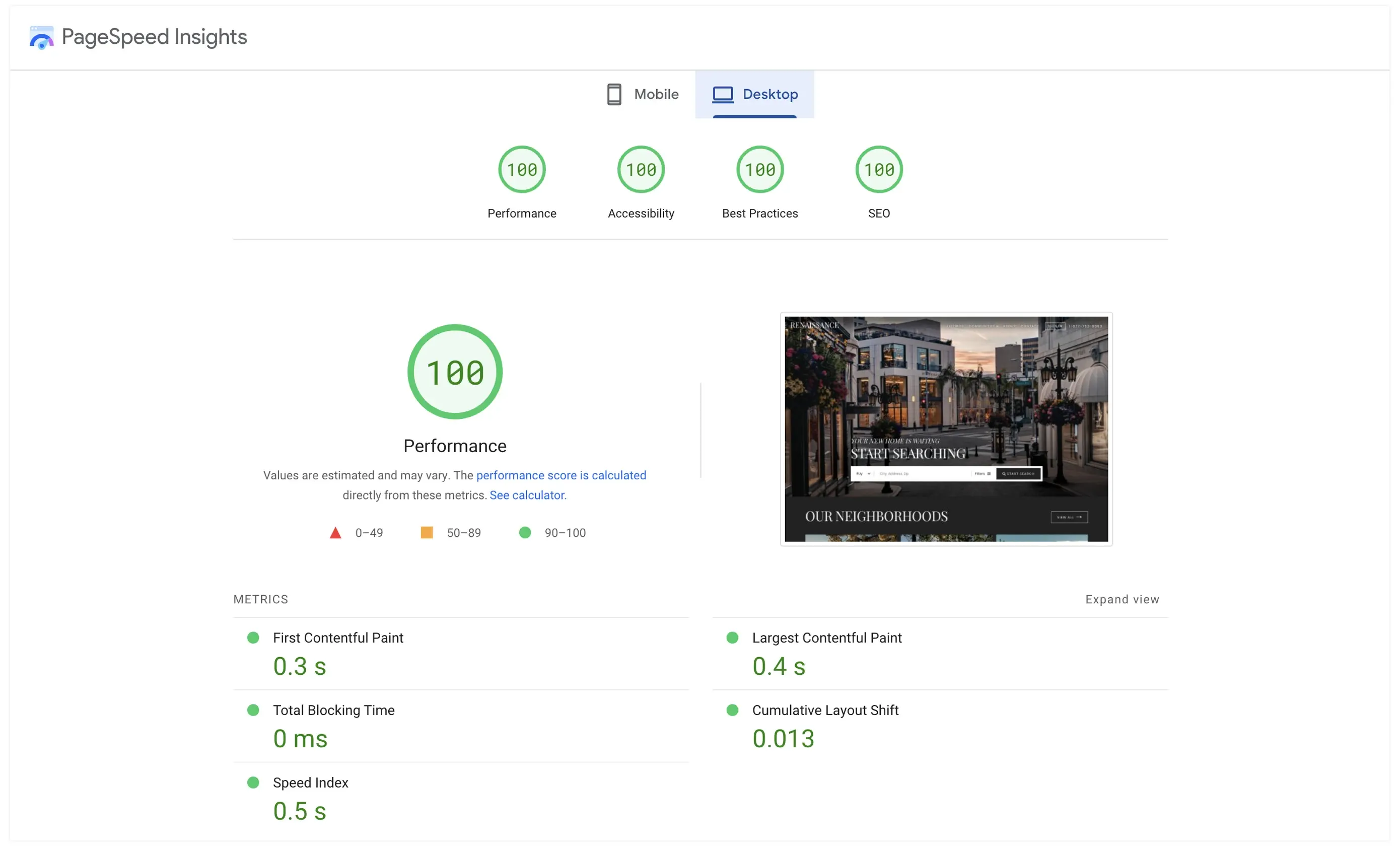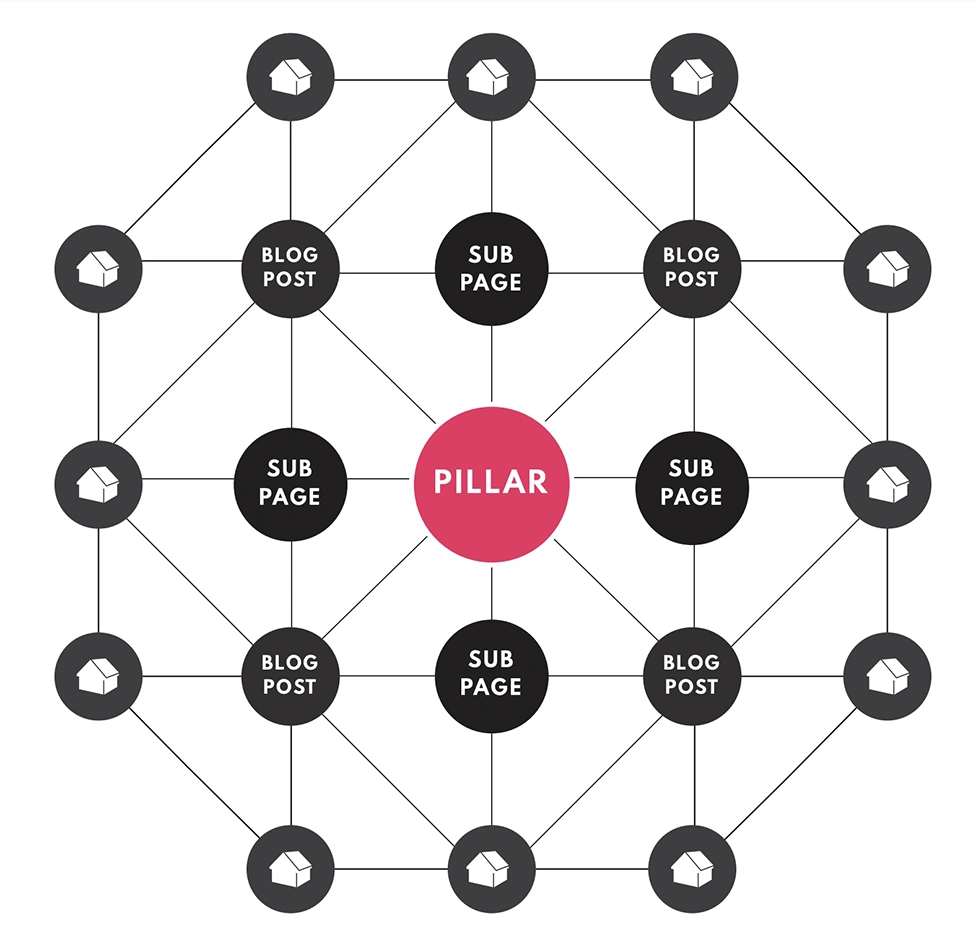SEO For Realtors®: Essential On-Page Optimizations
Understanding On-Page SEO
In an era where homebuyers start their hunt online, it's high time to jazz up your website's SEO game. Whether you're the neighborhood's go-to agent or the new kid on the block, this guide is your golden ticket to mastering on-page optimization and making a splash in the online real estate pool.
On-Page SEO Basics
In the vast world of SEO, on-page optimization is like the interior décor of a house you're selling. It's all about refining the elements within your website to make it appealing to both visitors and search engines. Think of it as staging a property: you want everything to look its best, be functional, and make potential buyers (or in this case, visitors) feel right at home.
On-page SEO encompasses everything from your content and keywords to meta tags and image optimization. It's the nitty-gritty details that, when done right, can make your website shine brighter in search engine results.
- Content is King: Always prioritize quality and relevancy.
- HTML Tags Matter: They help search engines understand your content's structure.
- Page Speed is Crucial: A faster site provides a better user experience.
Tip: Think of on-page SEO as the foundation of your digital property. A strong foundation supports all other SEO efforts.

Real Estate Webmasters' PageSpeed full 100 scores on desktop for Performance, Accessibility, Best Practices and SEO - a great example of a fast website.
Keywords & Implementation
Keywords are the signposts that guide potential clients to your digital doorstep. They're the terms and phrases that home buyers and sellers type into search engines. By understanding and implementing the right keywords, you're essentially speaking the language of your target audience.
Now, it's not just about stuffing your content with keywords. It's about strategically placing them where they matter most, like titles, headers, and meta descriptions. This ensures that search engines recognize the relevance of your content to user's queries.
- Use Tools: Platforms like Google's Keyword Planner, or Ahref's Keyword Explorer can identify high-traffic keywords.
- Consider Intent: Understand the difference between information and transactional keywords.
- Long-tail Keywords: These are longer phrases that can attract more specific, targeted traffic.
Tip: Always aim for a natural flow. Overstuffing keywords can harm your SEO efforts.

How "long-tail keywords" perform on search engines.
Meta Tags & Their Importance
Meta tags are like the enticing descriptions on property listings. They give search engines a quick snapshot of what your page is about. While they might seem tiny, they play a pivotal role in influencing click-through rates from search engines.
The two most crucial meta tags are the title tag and the meta description. The title tag is your headline, while the meta description offers a brief overview of the content. Both should be compelling and contain relevant keywords.
- Length Matters: Keep the title tag under 60 characters and meta descriptions under 160.
- Unique for Each Page: Every page on your site should have a distinct title and description.
- Include Calls to Action: Encourage users to click with phrases like "Learn More" or "Discover."
Tip: Do your best to reduce friction in your calls to action. What that means is to use phrases like "gain access now" to an email list, as opposed to "sign up today" which inadvertently asks for extra work on behalf of the user.
Image Optimization
A picture speaks a thousand words, especially in real estate. But online, it's not just about the image's visual appeal. Optimizing images ensures they load quickly and are easily understood by search engines. Always use descriptive file names and alt text for your images. The alt text describes the image to search engines and helps with accessibility for those using screen readers - Although it's tempting to stuff keywords into alt tags, this isn't effective - describe the image as effectively as possible.
- Compress Images: Use tools to reduce file size without compromising quality.
- Use Relevant File Formats: Aim to use WEBP files whenever possible, but JPG for photographs, and PNG for graphics with transparent backgrounds when that's not possible.
- Responsive Images: Ensure image display well across various device sizes.
Tip: Always keep user experience in mind. Slow-loading images can deter potential clients.

West and Main's listings page - a great example of fully optimized images.
URL Structure Best Practices
Think of URls as the address of a property. Just as you'd want a clear and easy-to-find address for a house, your web pages should have clean and descriptive URLs. A well-structured URL provides both users and search engines with a clear idea of what the page is about.
Avoid jargon or unnecessary characters in URLs. Instead, use clear words and phrases that describe the content, and if possible, include relevant keywords.
- Keep it Short: Concise URLs are more user-friendly and memorable.
- Avoid Special Characters: Stick to letters, numbers, and hyphens when possible.
- Use Lowercase: This ensures consistency and avoids potential errors.
Tip: When writing blogs, if you decide to include the year to showcase how new the blog is, simply add the year to the title, but not the URL structure, so that you can easily update the blog in the following years without having to change the URL.
Internal Linking Strategies
Internal links are like the pathways within a property complex, guiding visitors from one place to another. By strategically placing internal links, you can guide visitors through your site, increasing the chances of them staying longer and exploring longer.
Ensure your links are relevant. For instance, a blog post about home staging could link to your services page about staging consultations.
- Use Descriptive Anchor Text: Avoid generic phrases like "click here."
- Link Deep: Prioritize linking to deep pages rather than just your home page.
- Maintain a Balance: Don't overdo it. Too many links can be visually off-putting.
Tip: Think of internal linking as a guided tour of your digital property; make it seamless and informative.

Real Estate Webmasters' advanced SEO Pillar Structure.
Conclusion
Alright, Realtors®, let's wrap this up. As we've explored, SEO isn't just tech jargon - it's your secret weapon in your digital marketing strategy. By embracing these on-page tactics, you're set to outshine competitors and woo potential clients. Additionally, with our stellar PPC/SEO services, CRM, and custom websites by your side, the digital real estate world is truly your oyster.
On-Page SEO for Realtors® FAQ
How often should I update my meta tags?
Meta tags should be reviewed and updated whenever there's a significant change to your content or offerings. Regular auditing them ensures they remain relevant and compelling to potential visitors.
Do images really affect SEO?
Absolutely! Optimized images can improve page load times, enhance user experience, and provide additional ranking opportunities through image search.
How can I ensure my content remains high-quality?
Regularly update your content, avoid duplication, incorporate multimedia, and engage with your audience. It's also beneficial to stay informed about industry trends and adjust your content accordingly.
What's the benefit of internal linking?
Internal linking helps distribute page authority throughout your site, guides visitors to relevant content, and can improve the overall user experience. It's like offering a guided tour of your website's most valuable assets.
I'm new to SEO. How can I start implementing these on-page optimizations?
If your website is brand new, start with tasks like keyword research, meta-tag optimization, and content updates. Remember, SEO is a continuous process, so regular reviews and adjustments are key to success. However, if you'd prefer to put your website in the hands of SEO experts in the real estate industry, contact Real Estate Webmasters to see how we can help.
